Asilomar 2019 33nd Annual Asilomar Conference
The Weekend Of February 15 - 18, 2019
Where is Asilomar? The beautiful Asilomar Conference Grounds was designed in the Arts & Crafts style by architect Julia Morgan and is located near Monterey, California. We have held our conference there for the past 32 years. For more see the Wiki
Sign Up For The Upcoming Asilomar
If western culture is shown to be rich it is because… It has tried to dissolve harmful simplifications through inquiry and the critical mind.” – Umberto Eco
Asilomar once again beckons! This year’s conference reminded us of the pleasures of dialogue in the liberal arts – a conversation that flows from history to literature, from biology to design, from neuroscience to music to foreign affairs.
We have a slate of extraordinary speakers representing a broad range of disciplines and pursuits. As always, we look forward not only to sharing a mental workout but also to the privilege of renewing old friendships and beginning new ones – all in a location of exceptional peace and beauty. Thank you for joining us in what promises to be a lively and exhilarating exchange. It is not too early to sign up now!
Asilomar 2019 33nd Annual Asilomar Conference
The Weekend Of February 15 - 18, 2019
A Preview Of The 2019 Speakers:
|
“All life is but a canvas for our imagination.” -- Thoreau
Shannon Vallor, Ph.D. How to Cultivate Humane Machines – and People The spread of commercially viable artificial intelligence brings dizzying consequences for every sociotechnical system, from finance and transportation to healthcare and warfare. Less often discussed is the growing impact of AI on human practices of self-cultivation, those critical to the development of intellectual and moral virtues. Today, AI is weaponized in Trojan-horse attacks aimed at the root of our democratic virtues, designed to surreptitiously enter, mediate and gradually subvert the practices of public discourse by which civic virtues of trust, solidarity, charity, honesty, and justice are built and sustained. Through games and social media, AI is also being weaponized against our persons, to stall from an early age the cultivation of the virtues of patience, self-control, and intellectual and moral discernment. Yet while AI mediation can impede or denature self-cultivation practices, it also has the potential to amplify and sustain them. Humanizing AI design could provide reliable mirrors and feedback channels that foster more honest self-appraisals of our character. It could mediate newly creative practices of moral and intellectual modeling and imagination. It could reinforce more sustainable moral and intellectual habits. It could detect, signal, and perhaps even mediate fraying civic and personal relations. This talk poses the questions: is a world with humanizing machines possible? Desirable? If so, how can we build it? Shannon Vallor is the Regis and Dianne McKenna Professor of Philosophy at Santa Clara University, where she researches the ethics of emerging technologies. She is the author of Technology and the Virtues: A Philosophical Guide to a Future Worth Wanting, Oxford University Press (2016), and she is editor of the forthcoming Oxford Handbook of Philosophy of Technology. She serves on the executive leadership team of the non-profit Foundation for Responsible Robotics, and regularly advises technologists, legislators, and policymakers on ethical issues in technology practice.
Frederick M. Lawrence, J.D. The Nature of the University
Frederick M. Lawrence is the 10th Secretary and CEO of the Phi Beta Kappa Society, the nation’s first and most prestigious honor society, founded in 1776. Lawrence is a Distinguished Lecturer at the Georgetown Law Center, and has previously served as president of Brandeis University, Dean of the George Washington University Law School, and Visiting Professor and Senior Research Scholar at Yale Law School. He was elected to the American Philosophical Society in 2018 and the American Law Institute in 1999. An accomplished scholar, teacher and attorney, Lawrence is one of the nation’s leading experts on civil rights, free expression and bias crimes. Lawrence has published widely and lectured internationally. He is the author of Punishing Hate: Bias Crimes Under American Law (Harvard University Press 1999), examining bias-motivated violence and the laws governing how such violence is punished in the United States. He is an opinion contributor to The Hill and US News, frequently contributes op-eds to various other news sources, such as Newsweek, the Boston Globe, the Philadelphia Inquirer, the Observer, the NY Daily News and The Huffington Post, and has appeared on CNN among other networks. Read more...
Steve Hollingworth, M.A. Economics (Development) Grameen Foundation How can digital technology empower the world’s poorest women? Of the global population of 7.6 billion people, over 5 billion subscribe to mobile services. These services are transformative, connecting people to information, education, entertainment, emergency services, financial services, and each other. But what about those who aren’t connected? A recent report finds that 1.2 billion women in low- and middle-income countries do not use mobile internet and nearly one billion women, compared to about 700,000 men, are unable to access formal financial services of any kind. Grameen Foundation works to close these gaps.
What is the journey of a woman in a rural village who moves from relative isolation to accessing growing networks of connection with formal financial, agricultural and health services? What role does big data—and data privacy—play in this transformation? And how can we and our partners ensure that the solutions developed are sustainable and scalable? We will probe these questions, delving into pilots and programs that drive forward new breakthroughs for the world’s poor.
Steve Hollingworth is President and CEO of Grameen Foundation, a global nonprofit organization whose mission is to enable the poor, especially women, to create a world without poverty and hunger. He has worked in international development for 30 years, with a focus on the delivery of financial services to benefit the world’s poorest people. Previously, Steve served as President of Freedom from Hunger, and as Chief Operating Officer for CARE. He has an M.S. in Economics, Development Studies, from Victoria University of Manchester, and a B.A. from Augustana College, where he was inducted into ΦBK.
Maybe a good time for a walk on the beach? There are lovely walks along the coast, or some shorter paths as described below: Asilomar State Beach is a narrow, one-mile strip of sandy beach and rocky coves. A ¾ mile coast walking trail is open to pedestrians. Dogs ARE permitted on the state beach and the coast trail, but must be leashed at all times and be in the immediate control of the handler. The trail is accessible and a beach wheelchair is available upon request at the Registration Desk. Across the street from Asilomar State Beach is Asilomar Dunes Natural Preserve, where a landmark stile stands at the gateway to this preserve and the Asilomar Conference Grounds. A ¼ mile boardwalk meanders through 25 acres of restored sand dune ecosystem where visitors can discover the native plant greenhouse where more than 450,000 plants, representing 25 species, have been grown and planted in the effort to preserve the dunes and coastal bluffs. Several boardwalk outlooks provide panoramic views of Asilomar State Beach and the blue Pacific Ocean.
Robert Hartwell, Ph.D. Music Mozart and Mythology It has been 228 years since one of humanity’s greatest geniuses was buried in an unmarked grave on the outskirts of Vienna. Since that time, few figures in history have been so surrounded by myths, half-truths, and sheer nonsense. How, for example, does one square the notion of Mozart’s financial desperation with his $200,000+ annual earnings? In the process of debunking those myths, we will look both at the truths that generated them and the culture that perpetuates them—this against a soundtrack of surpassing masterpieces. Robert Hartwell holds a doctorate in music education from Columbia University. As Professor of Music at Foothill College, he specializes in welcoming the uninitiated into the world of classical music, and pioneered Foothill College’s innovative course in popular culture. Dr. Hartwell has co-authored a three-volume series on the history of Western music, and was a contributory author to The Quarterly Journal of the Riemenschneider Bach Institute and the New Pedagogies in Higher Education series. Hartwell is a regular guest lecturer at the Institute for the Study of Western Civilization, and is a pre-performance lecturer for the San Francisco Opera.
Lee Panich, Ph.D. New insights into the lives of Native Californians at Spanish missions
Recent archaeological investigations at Spanish missions in the San Francisco Bay area provide new insights into the lives of Native Californians during the colonial period. While archival documents offer evidence of the overall impacts of the mission system on California’s indigenous societies, few observers wrote about the daily lives of the thousands of men, women, and children who inhabited the missions. Through excavations within the native rancherías associated with Missions Santa Clara and San José, archaeologists are filling in the gaps in the documentary record to reveal the persistence of indigenous cultural practices. The material evidence offers clues to clandestine activities within the mission estate as well as previously undocumented connections to autonomous communities in the colonial hinterlands. These findings encourage us to rethink the scholarly and popular portrayal of so-called Mission Indians.
Lee Panich is an Associate Professor of Anthropology at Santa Clara University. His research focuses on the experiences of indigenous groups during the colonial period, with a particular focus on the Spanish mission system in California and Baja California. He is the co-editor of Indigenous Landscapes and Spanish Missions (2014) and the author of more than two dozen scholarly articles and book chapters on the archaeology of colonialism. Lee holds a Ph.D. from UC Berkeley and a bachelor’s degree from Brown University, where he was inducted into Phi Beta Kappa in 2001.
|

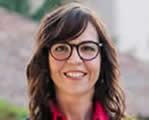 Friday Evening, 7:30 pm.
Friday Evening, 7:30 pm.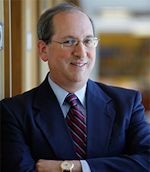 Saturday Morning, 9:30 am.
Saturday Morning, 9:30 am.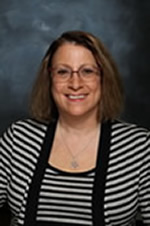 Saturday Afternoon, 1:30 pm.
Saturday Afternoon, 1:30 pm.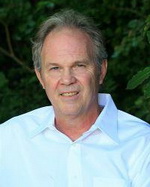 Saturday Evening, 7:30 pm.
Saturday Evening, 7:30 pm. Sunday Morning, 10:00 am.
Sunday Morning, 10:00 am.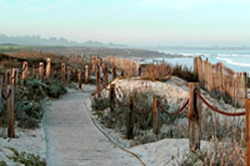 Sunday afternoon, free time
Sunday afternoon, free time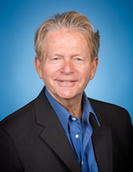 Sunday Evening, 7:30 pm.
Sunday Evening, 7:30 pm.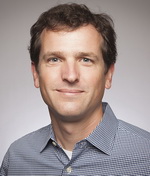 Monday Morning, 9:30 am
Monday Morning, 9:30 am